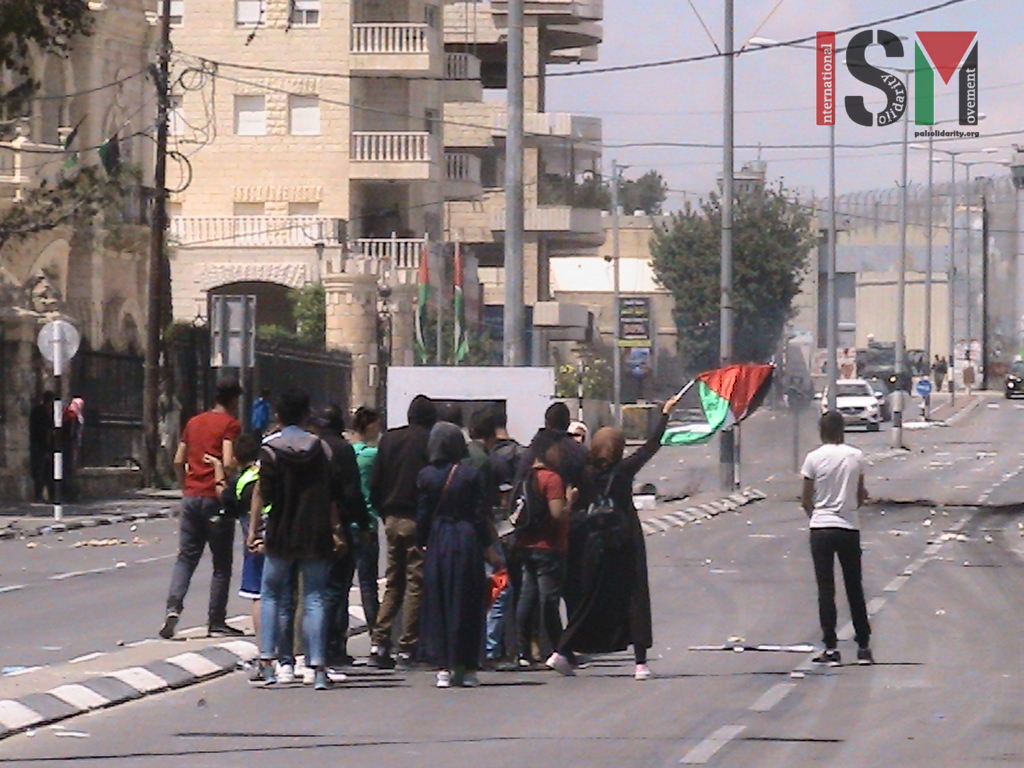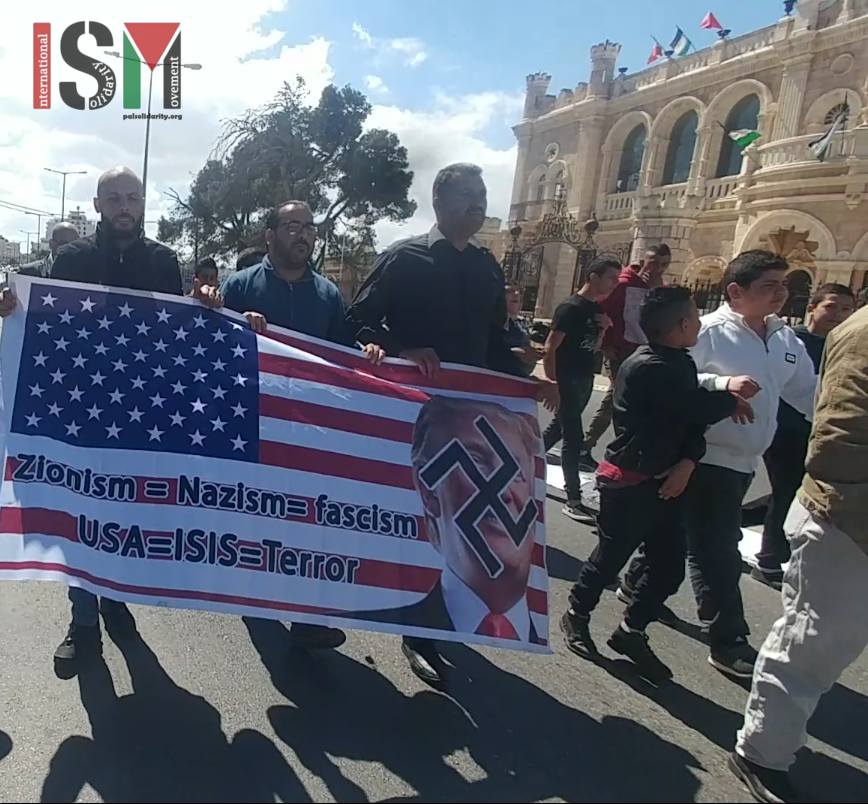Tag: Bethlehem
-
Protesters break through replica of Apartheid Wall in Bethlehem symbolic run
Protesters gather for symbolic marathon near Apartheid Wall in Bethlehem June 19 2019 | International Solidarity Movement | Bethlehem, occupied Palestine Hundreds of people gathered in cities across the Palestinian Territories and England on Sunday June 15, to participate in a symbolic marathon in honour of the international right to freedom of movement. The project, called…
-

Bethlehem protests the US embassy relocation
On the 14th May 2017, the day the new US embassy to Israel was due to open in Jerusalem, protests were held across Palestine. In Bethlehem, hundreds of children, women and men marched from Nisan Square to the gate in the apartheid wall separating them from Jerusalem. This unarmed protest was immediately met by brutal…
-

Palestinians pray in the streets of Bethlehem and march against Donald Trump
16th March 2018 | International Solidarity Movement, al Khalil team | Occupied Palestine This morning, Palestinians gathered in front of the apartheid wall by the Intercontinental Hotel in Bethlehem for Friday Prayer, which was held in the street. After the prayer, Palestinian and international protesters marched peacefully to the gate of the apartheid wall chanting…
